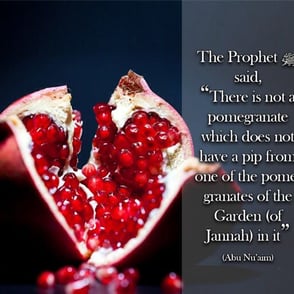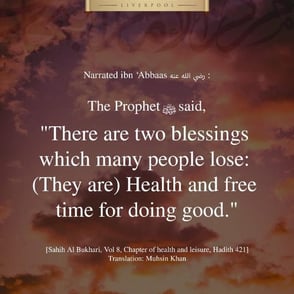The Healing Power of Tibbe Nabvi and Herbal Medicine from an Islamic Perspective
8/24/202411 min read


Introduction to Tibbe Nabvi
Tibbe Nabvi, or prophetic medicine, embodies the natural and holistic healing practices endorsed by Prophet Muhammad (peace be upon him). This comprehensive approach seeks to harmonize physical, mental, and spiritual health, emphasizing the individual's overall well-being. Historically, Tibbe Nabvi has its roots in the teachings and traditions of early Islam, originating nearly 1,445 years ago when the Prophet promoted natural remedies and preventative measures as part of everyday health maintenance.
The practices of Tibbe Nabvi have been meticulously preserved through centuries, thanks to the dedicated transmission of Hadiths (sayings and actions of the Prophet) and scholarly works that have documented these traditional remedies in great detail. This wealth of knowledge was not merely confined to the Middle Ages but has been continually revered and studied within the Islamic tradition. Today, the relevance of Tibbe Nabvi persists, with many finding solace in its natural and accessible remedies amidst the complexities of modern medicine.
One of the central tenets of Tibbe Nabvi is the idea that maintaining health is a form of worship and an essential responsibility towards the blessings provided by Allah. This belief underscores the holistic nature of prophetic medicine, where physical health is inextricably linked to spiritual well-being. Engaging with these practices is seen not just as an effort to heal the body but also as a means to honor and care for the soul. This dual focus on body and spirit reflects a profound understanding of human health that remains deeply relevant in today's fast-paced world.
By integrating prophetic guidance with tangible health benefits, Tibbe Nabvi offers a unique blend of spirituality and practical health advice. These time-honored practices continue to resonate, offering a path to wellness that is grounded in faith, tradition, and respect for the natural world. As such, Tibbe Nabvi remains a testament to the enduring wisdom of the Prophet Muhammad and the timeless value of holistic, natural healing.
At Al Akbar Shahi Dawakhana, we have dedicated ourselves to preserving and promoting this invaluable tradition, offering a range of herbal treatments that align with the principles of Tibbe Nabvi.
Core Principles of Tibbe Nabvi
Tibbe Nabvi, or the Prophetic Medicine, is deeply rooted in the teachings and practices of the Prophet Muhammad (PBUH). The core principles of Tibbe Nabvi emphasize the importance of prevention over cure. Rather than focusing solely on treating illnesses after they occur, Tibbe Nabvi advocates for maintaining a healthy lifestyle to prevent diseases from taking hold. This preventive approach is multifaceted and includes a balanced diet, regular physical activity, and meticulous hygiene.
Nutrition plays a pivotal role in Tibbe Nabvi. According to prophetic traditions, consuming wholesome and balanced foods is not only vital for physical well-being but also for spiritual health. Foods such as honey, olive oil, and dates are highlighted for their nutritional and medicinal properties. A diet devoid of excess and indulgence ensures that the body remains in optimal condition, thereby averting potential health issues. Prophet Muhammad (PBUH) often stressed moderation, advising his followers to eat in lesser quantities and only when hungry, which aligns with modern dietary principles.
Hygiene is another cornerstone of Tibbe Nabvi. The prophetic teachings advocate for routine practices of cleanliness, including regular washing of hands and maintaining oral hygiene. These practices, which have been reiterated in hadiths, serve not only to purify the body but are also acts of worship, reinforcing the connection between physical cleanliness and spiritual purity.
Regular physical activity is also emphasized. Engaging in exercises, walking, and maintaining an active lifestyle are encouraged, as they help in keeping the body resilient and fit. This aligns closely with current medical understanding of the benefits of physical fitness.
A distinctive aspect of Tibbe Nabvi is its strong spiritual component. The integration of faith into the healing process is fundamental. By fostering a deep connection to Allah and seeking His guidance, patients are encouraged to view their well-being holistically. This spiritual dimension not only provides comfort but also instills a sense of purpose and resilience, reinforcing the belief that ultimate healing and wellness come from the Divine. Incorporating prayers, supplications, and trust in Allah forms an intrinsic part of the healing journey, making Tibbe Nabvi a comprehensive approach to health and wellness.
Herbal Remedies in Tibbe Nabvi
The rich tradition of Tibbe Nabvi, or Prophetic Medicine, incorporates a variety of herbal remedies that have been cherished and utilized for centuries. Among the most notable herbs are black seed (Nigella sativa), honey, olive oil, and dates, each heralded for their significant health benefits.
Black seed (Nigella sativa), famously touted by the Prophet Muhammad (peace be upon him) as a remedy for all diseases except death, holds a revered place in Islamic history. Modern scientific research supports many of these claims, highlighting its potent anti-inflammatory, antioxidant, and antimicrobial properties. Studies have shown that black seed can aid in treating conditions such as asthma, diabetes, hypertension, and digestive issues, further substantiating its role in enhancing overall wellness.
Honey is another key component of Tibbe Nabvi, praised not only for its sweetness but also its medicinal virtues. Islamic texts often mention honey as a cure for various ailments, consistent with modern findings. Research reveals honey's efficacy in wound healing, its antibacterial activity, and its ability to soothe ailments such as coughs and sore throats. Additionally, honey's rich enzymes and nutrients foster digestive health, making it a versatile remedy.
Olive oil, frequently mentioned in Islamic literature, is celebrated for its array of health benefits. Known for its high content of monounsaturated fats and antioxidants, olive oil contributes to cardiovascular health, reduced inflammation, and prevention of chronic diseases. Its external application is also valued for skin and hair health, adding to its comprehensive nutritional profile.
Dates hold a special place not only in Islamic dietary practices but also as a medicinal food. Dates are packed with essential nutrients, including vitamins, minerals, and fiber, supporting energy levels, digestive health, and even neurological function. The high antioxidant content of dates has been shown to play a role in reducing inflammation and protecting against various diseases.
These herbal remedies align seamlessly with the body's innate healing processes, further illustrating the wisdom embedded within Tibbe Nabvi. By integrating these natural treatments, both historical wisdom and modern science highlight the enduring efficacy and harmony of these herbal solutions in promoting holistic health.
Lifestyle Changes and Holistic Practices
The holistic approach of tibbe nabvi extends beyond mere physical health, integrating mental and emotional well-being into its fold. A foundational aspect of this practice is the alignment of lifestyle changes with spiritual teachings to achieve comprehensive health. One of the primary recommendations is adopting a balanced sleep pattern, emphasizing the importance of sufficient and regular rest. Proper sleep is integral to maintaining both physical vitality and mental clarity, as advocated in several hadiths.
Stress management is another critical component of the holistic practices encouraged by tibbe nabvi. The prophetic traditions recommend various techniques to mitigate stress, including regular prayers, meditation, and engaging in positive social interactions. These practices cultivate a sense of inner peace and contribute to emotional resilience, thus reducing the overall burden of stress. The emphasis on spiritual practices underscores the interconnectedness between mental well-being and physical health, highlighting the importance of managing stress to prevent associated ailments.
Moreover, moderation in all aspects of life is a cornerstone of tibbe nabvi's holistic health approach. This includes balanced dietary habits, regular physical activity, and the avoidance of excesses in lifestyle choices. According to hadiths, overindulgence in food, wealth, and other material pursuits can lead to various health issues. By practicing moderation, individuals can maintain a harmonious balance that supports overall well-being and prevents the onset of diseases.
The integration of these lifestyle changes fosters a comprehensive state of health, transcending the mere absence of illness. By adopting a balanced sleep regimen, effective stress management techniques, and a moderate lifestyle, individuals can enhance their overall quality of life. These practices, deeply rooted in the teachings of tibbe nabvi, underscore the importance of a holistic approach to health, thereby contributing to the prevention and management of various illnesses.
Spiritual Dimensions of Health in Islam
The Islamic perspective on health transcends the physical realm, deeply intertwining with spiritual dimensions. Central to this viewpoint is the belief that the mind, body, and spirit are interconnected, and maintaining their balance is essential for holistic well-being. The teachings of Islam emphasize that spiritual practices play a pivotal role in fostering a sense of peace and strengthening one's overall health.
Prayer, or Salat, serves as a fundamental component of a Muslim's daily life and is paramount for nurturing spiritual health. Performing the five daily prayers reinforces a constant connection with Allah, providing moments of reflection and tranquility amid life's turbulence. These regular intervals of devotion not only contribute to a disciplined lifestyle but also mitigate stress and anxiety, promoting emotional resilience.
Additionally, the recitation of the Quran holds profound therapeutic benefits. The rhythmic and melodic intonation during Quranic recitation is known to induce a meditative state, conducive to mental calmness and emotional stability. Engaging with the Quranic text enhances cognitive focus and instills a sense of purpose and meaning, which are critical during times of illness or hardship.
Duas, or supplications, also play an integral role in the spiritual health of Muslims. These personal appeals to Allah foster a deep sense of trust and dependence on divine wisdom and mercy. By regularly engaging in duas, individuals can cultivate hope and optimism, which are essential for mental fortitude in the face of adversity. These supplications become a source of comfort and reassurance, reinforcing the belief that Allah's guidance will aid them through their trials.
The collective impact of these spiritual practices manifests in a fortified inner strength and mental clarity, enabling Muslims to cope with life's challenges more effectively. Integrating prayer, Quranic recitation, and duas into daily routines aligns with the holistic approach to health in Islam, emphasizing the symbiotic relationship between spiritual wellness and physical health.
Integration of Tibbe Nabvi with Modern Medicine
In recent years, the medical community has increasingly recognized the value of integrative medicine, which combines various therapeutic approaches to cater to the holistic well-being of patients. Tibbe Nabvi, an Islamic system of medicine grounded in the teachings of the Prophet Muhammad, offers a wealth of natural remedies that can complement contemporary medical practices. By integrating Tibbe Nabvi with modern medicine, healthcare practitioners can provide a more comprehensive and nuanced approach to patient care.
Integrative medicine seeks to harmonize traditional practices with conventional treatments to address the physical, emotional, and spiritual dimensions of health. Tibbe Nabvi, with its emphasis on herbal remedies, dietary regulations, and spiritual well-being, fits seamlessly into this model. For instance, patients suffering from chronic conditions like diabetes or hypertension may benefit from modern pharmaceuticals for immediate control, while Tibbe Nabvi's dietary recommendations and stress-relieving practices can offer long-term lifestyle modifications.
Several case studies have underscored the potential of this integrated approach. For example, a study involving patients with gastrointestinal disorders showed that adding herbal treatments prescribed in Tibbe Nabvi, such as honey and black seed, to conventional therapies resulted in a significant improvement in symptoms. Another case highlighted a patient with chronic stress who benefited immensely from combining modern psychological counseling with traditional Tibbe Nabvi practices such as meditation and prayer, thereby achieving a balanced state of mental health.
It is essential to underscore the importance of consulting both medical professionals and spiritual advisors when exploring integrative medicine. While modern medicine provides advanced diagnostic tools and effective treatments, Tibbe Nabvi brings a spiritual and holistic dimension that can enrich patient care. Engaging with both avenues ensures a well-rounded approach, addressing not only the physical manifestations of illness but also their spiritual and emotional underpinnings.
By weaving together the strengths of modern medicine and Tibbe Nabvi, healthcare practitioners can facilitate a more encompassing and empathetic model of care. This integrated approach not only promises enhanced therapeutic outcomes but also adheres to the holistic principles that resonate deeply with patients seeking balance in their health and well-being.
How Al Akbar Shahi Dawakhana Incorporates Tibbe Nabvi
At Al Akbar Shahi Dawakhana, we understand the profound wisdom of Tibbe Nabvi and work to bring its healing power to our patients. Our treatments are based on the principles of Prophetic Medicine, using time-tested herbal remedies and therapies that are free from harmful chemicals and side effects.
We offer a range of products and courses designed to treat various health conditions, always keeping the teachings of Tibbe Nabvi at the core. Some of our key offerings include:
Al Arabi Hussan-e-Nayab: This herbal treatment focuses on restoring vitality and strengthening the body. It addresses issues like nervous weakness, liver health, and digestion, promoting natural body building and overall physical strength.
Al-Arbi Female Infertility Course: Infertility is a significant concern for many women, but with the help of our natural remedies, we target the root causes of reproductive health issues. This course helps in regulating hormones, improving egg quality, and supporting overall reproductive health.
Old Man Health Course: Designed for aging men, this course provides relief from conditions such as arthritis, muscle weakness, nervous fatigue, and male impotence. It helps restore energy and vitality, allowing older men to enjoy an active and healthy lifestyle.
Al Akbar Sugar and Diabetes Medicine: Managing diabetes can be challenging, but our herbal remedy helps regulate blood sugar levels naturally. It strengthens the immune system and promotes better energy levels, offering a holistic approach to managing diabetes.
Male Fertility Course: Infertility isn’t just a women’s issue. Our Male Fertility Course helps men overcome challenges like low sperm count and impotence through natural remedies that restore reproductive health and vitality.
Strength and Immunity Booster Course: Whether you are recovering from an illness or simply want to enhance your body’s defenses, this course is designed to boost overall strength and immunity using herbal treatments that nourish the body.
Why Choose Al Akbar Shahi Dawakhana?
In today’s fast-paced world, people are increasingly looking for natural and safe alternatives to synthetic medications. At Al Akbar Shahi Dawakhana, we draw on centuries of knowledge and expertise in herbal medicine, rooted in the Islamic tradition of Tibbe Nabvi. Our treatments are crafted with care and precision by Hakeem Rashid Ali Bhindar, an expert in traditional herbal medicine with years of experience helping patients achieve lasting health and well-being.
Our goal is to offer holistic treatments that address the root causes of health issues, rather than just treating the symptoms. By incorporating the timeless wisdom of Tibbe Nabvi into our remedies, we ensure that our patients receive safe, natural, and effective treatments that promote balance in both body and soul.
Experience the Healing Power of Tibbe Nabvi with Al Akbar Shahi Dawakhana
If you are seeking natural, effective solutions for your health concerns, consider the healing power of Tibbe Nabvi. At Al Akbar Shahi Dawakhana, we are committed to helping our clients achieve optimal health and well-being through herbal medicine that honors the teachings of the Prophet Muhammad (peace be upon him).
For more information or to schedule a consultation, contact us at 0340-5921211 or visit us online. Let us guide you on the path to holistic health, as we draw from the Prophetic tradition to help you achieve balance, vitality, and spiritual well-being.








Dua for Good Health from the Quran and Hadith: Healing Through Faith and Nature
In Islam, seeking good health is not only a physical pursuit but also a spiritual one. The Qur'an and Hadith provide Muslims with various duas (prayers) for well-being, reminding us that health comes from Allah (SWT) and that we must turn to Him for healing and protection. Alongside faith, Islam also encourages the use of natural remedies to treat illness, a concept beautifully embodied in Tibbe Nabvi (Prophetic Medicine). At Al Akbar Shahi Dawakhana, we combine the power of dua with traditional herbal treatments to offer comprehensive solutions for your health concerns.
Duas for Good Health from the Quran and Hadith
Dua for Protection and Healing: The Qur'an teaches us to seek protection and healing from Allah. One of the powerful duas for health is:
"And when I am ill, it is He who cures me." (Qur'an 26:80)
This verse reminds us that all healing ultimately comes from Allah, and we must place our trust in His power to cure us.
Dua for Relief from Pain and Suffering: The Prophet Muhammad (peace be upon him) often prayed for relief from suffering. One such dua is:
"O Allah, Lord of mankind, remove the harm and heal. You are the Healer, and there is no healing except Your healing, a healing that leaves behind no disease."
(Sahih Bukhari and Sahih Muslim)This dua acknowledges that Allah is the ultimate Healer and that true healing comes from Him alone.
Dua for General Well-being: The Prophet (peace be upon him) also encouraged Muslims to ask for overall well-being in this world and the Hereafter:
"O Allah, I ask You for pardon and well-being in this world and the Hereafter. O Allah, I ask You for pardon and well-being in my religion, in my worldly affairs, in my family, and in my wealth."
(Sunan Abu Dawood)This comprehensive dua seeks good health, protection, and peace in all aspects of life.
Dua for Strength and Protection: When feeling weak or in need of strength, reciting this dua is beneficial:
"O Allah, I seek refuge in You from a heart that does not fear You, and a prayer that is not answered, and a soul that is never satisfied, and knowledge that does not benefit."
(Sahih Muslim)This dua asks for protection from spiritual ailments that can impact our overall well-being.
Get in touch
Wellness
Traditional remedies for health and vitality.
© 2024. All rights reserved.
92 340 5921211
